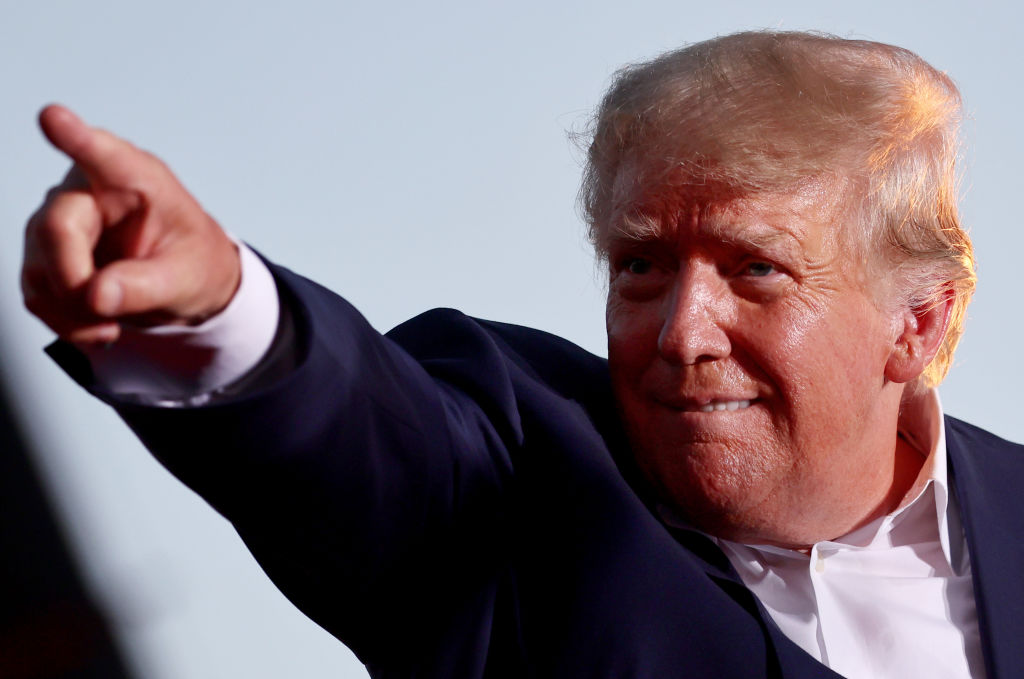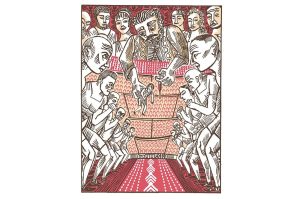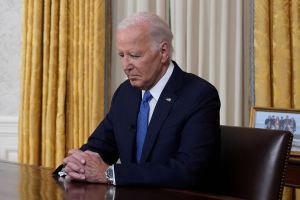I take a page from history.
On Thursday, the Committee (you know which one) voted 9-0 to subpoena the former president.
Of course, he might refuse to comply with the subpoena. What then?
- “Contempt. The full House, which is controlled by Democrats until at least January, could vote to hold him in contempt of Congress, something it’s done with several other uncooperative witnesses
- “Referral. After a contempt of Congress referral, the Justice Department could then prosecute, as it did with Trump’s former aide Steve Bannon and plans to do with his once economic advisor Peter Navarro
- “Prosecution. If found guilty, as Bannon was, Trump could theoretically face a minimum of thirty days in jail. Bannon will be sentenced for failing to comply with the House subpoena later this month”
Experts — I mean “experts” — say this this is unlikely but who knows?
The New York Times reported another scenario. The former president, they wrote in a front page story, “declined yesterday to comply with the subpoena served” on behalf of the House Committee. “At a tense and crowded news conference,” they reported, the former president “said his position was based on ‘universally recognized constitutional doctrine.’” He went on to say that “In spite of my personal willingness to cooperate with your committee, I feel constrained by my duty to the to the people of the United States to decline to comply with the subpoena.”
The former president then cited sixteen previous presidents, Democrats as well as Republicans, who had declined to respond to congressional subpoenas. He also, the Times reported, insisted that “if the doctrine of the separation of powers — and the independence of the presidency — was to have ‘any validity at all,’ it must apply equally to a president in office and to one who had left office — assuming the inquiry related to matters connected to his administration.”
According to the Times, he went on to observe that the principle of the separation of powers would fail and “the presidency shrink to a mere arm of the legislative branch — ‘contrary to our fundamental theory of constitutional government’ — if the president should feel during his term that his ‘every act might be subject to an official inquiry and possible distortion for political purposes.’” To this point, he quoted Andrew Jackson who, faced with a similar demand from Congress, said, “For myself, I shall repel all such attempts as an invasion of the principles of justice as well as of the Constitution, and I shall esteem it my sacred duty to the people of the United States to resist them, as I would the establishment of a Spanish Inquisition.”
Constitutional experts were divided in their response to the former president’s refusal to cooperate with the Committee’s subpoena, but the Committee let it be known that it would not act against the former president.
The Committee, by the way, was the House Committee on Un-American Activities — a good name, now that I think of it, for Liz Cheney’s last hurrah on Capitol Hill — and the president was Harry Truman. Donald Trump and his supporters might want to take a page from Truman’s robust response to that earlier example of congressional overreach and disgusting, megalomaniacal insanity on the part of rogue legislators. The Times story from November 13, 1953 has some revelatory details.





















